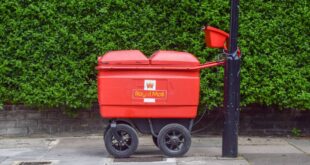Calls are growing for more public control of Britain’s railways, as a UK government minister admitted the privatised model adopted in the 1990s was “no longer working.”
The coronavirus crisis has forced the UK government to ramp up funding and involvement in the running of Britain’s railways, as plummeting journeys have hammered operators’ revenues.
The government said the franchise-based model of the past 24 years had come to an end on Monday, with transport minister Grant Shapps promising a “new deal.”
The department for transport highlighted plans for radical reform once a review by Royal Mail chair Keith Williams is completed, which came after the failure of some franchises and timetable overhaul the government admitted had proved “chaotic.”
Watch: Rail Franchising ‘ended’ as government seeks new rail future
But with the review still underway, the government has moved rail operators onto transitional contracts this week which critics said were still not radically different to the existing system.
The government said the new emergency recovery measures agreements (ERMAs) “have tougher performance targets and lower management fees,” and force operators to work more closely together. “Significant taxpayer support” would still be needed until passenger numbers rise significantly, a government press release said.
READ MORE: UK train firms sign government contracts to keep them afloat
But Labour’s shadow rail minister Tan Dhesi claimed the agreements “paper over the cracks,” and that hundreds of millions of pounds would continue to flow to the same private firms.
“It’s time to put passengers before profit and bring our rail franchises back into full public ownership,” said Dhesi.
Unions backed the call for wholesale nationalisation. RMT general secretary Mick Cash said: “This announcement should now force the government’s hand and lead them to face up to what has been staring them in the face for the best part of three decades, that public ownership is the only model that works and can steer us through a crisis such as COVID-19.
“The government must now ditch its obsession with the free market and call to a halt any attempts to reanimate the corpse of rail privatisation.”
Meanwhile London politicians called for Transport for London, chaired by London mayor Sadiq Khan, to be granted more power over London’s suburban rail links. TfL only oversees the city’s Underground, Overground and Docklands Light Railway (DLR) lines, as well as other transport services such as buses.
READ MORE: Fares to rise after TfL takes UK government bailout to survive crisis
Watch: What are negative interest rates?
Alison Moore, chair of the transport committee on the London Assembly, said the previous system had been “complicated and fragmented” across the country. She welcomed additional cash to support operators, but said she hoped it “paved the way to greater devolution.”
“TfL made drastic improvements to the London Overground line. The Assembly wants to see the same again with other suburban rail routes across London,” added Moore.
The government acknowledged current reforms were a stopgap, however, calling them the “first step in bringing Britain’s fragmented network back together.”
Firms’ fees will be capped at 1.5% of the cost base of the franchise pre-pandemic.
Shapps said: “The model of privatisation adopted 25 years ago has seen significant rises in passenger numbers, but this pandemic has proven that it is no longer working.”
The new reforms will “keep the best elements of the private sector, including competition and investment, that have helped to drive growth,” he added. But he promised they will deliver “strategic direction, leadership and accountability.”
Source link


